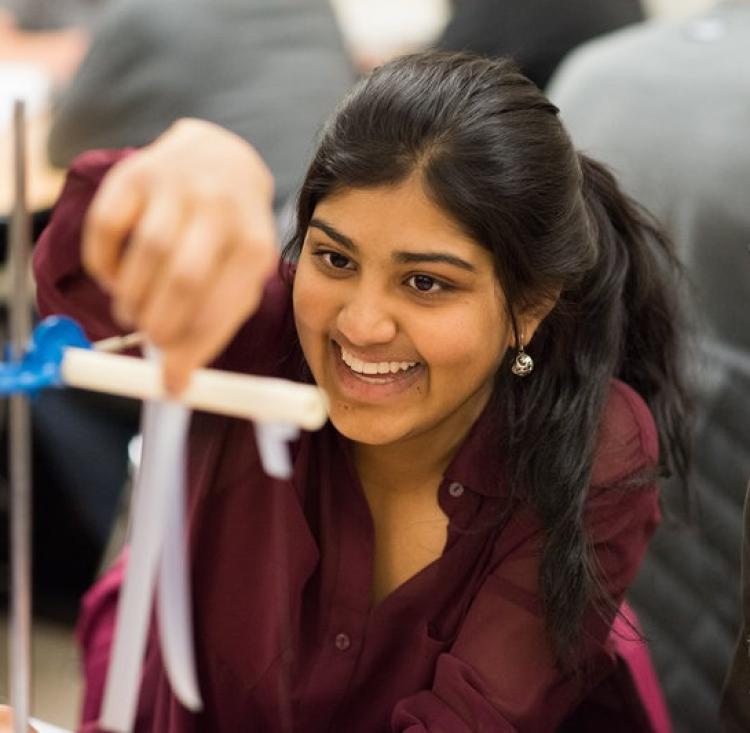
Photo by Theo Stroomer for NPR
In the basement of the Duane Physics and Astrophysics Building at the University of Colorado Boulder, a science demonstration is going on, but it looks more like a vaudeville act.
According to the story "Making Science Teaching More Than 'A Backup Plan'" published by NPR online on Feb. 4, one by one, students balance precariously on a rotating platform. The principle at work is called angular momentum, and the lesson is being taught with help from Learning Assistants, undergraduates trained and paid to help teach fellow students.
Most science and engineering classes around the country are a lot less interactive, a lot more intimidating, and daresay it, a lot less fun than this one. CU Boulder has started a movement to improve the quality of science education around the country, not only on campuses but in K-12 classrooms. And the LAs, as they're called, are at the center of this work.
Many of CU Boulder's large lectures also feature weekly small group discussions, labs, and demonstrations facilitated by the LAs. The LAs take a course on pedagogy that emphasizes the use of open-ended questions and other research-driven teaching techniques. Research shows that use of LAs improves students' understanding of science concepts in physics, astronomy, and biology. As an additional side effect, these bright young scientific minds get curious about the process of teaching and learning itself.
While there is a lot of talk about the importance of STEM — Science, Technology, Engineering and Math — for America's future competitiveness, across the country very few undergraduate math and science majors go on to become classroom teachers. With the introduction of the Learning Assistant Program, today about 16 to 20 LAs every year at CU Boulder get their teaching certificates while they're still undergraduates.
Valerie Otero helped start the LA program soon after she came to CU Boulder's School of Education in 2003. She says research following former LAs into the classroom shows that they continue to be more likely to use more evidence-based teaching techniques, like group discussions. This effect on the STEM teacher pipeline is a big reason the LA program is now being copied at more than 88 universities around the country.
"It's spreading like wildfire," says Otero.
Read the full article on NPR Ed.
Related Faculty: Valerie Otero
